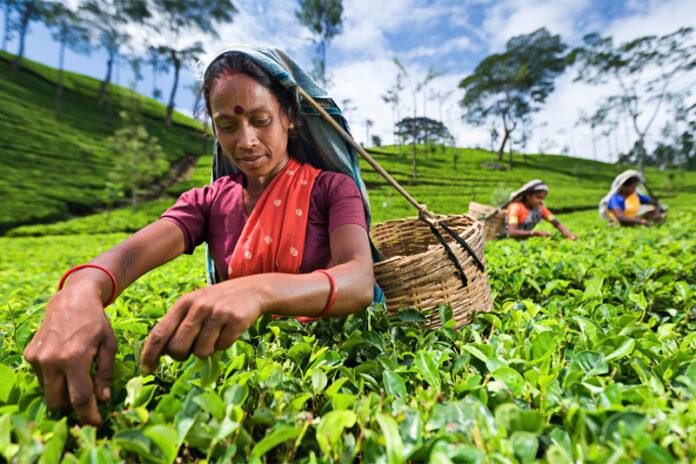By: Staff Writer
August 07, Colombo (LNW): Sri Lanka’s tea industry — long famed for its premium “Ceylon Tea” brand — is bracing for fresh challenges as the United States implements a new tariff structure from August 7, potentially undermining the country’s competitiveness in one of its key export markets.
Under the revised US tariff system, Sri Lankan tea exports will now be subjected to a 20% import duty, erasing the previous zero-duty advantage the country once enjoyed.
While this places Sri Lanka 5% ahead of India, which will now face a steep 25% tariff, it finds itself at a disadvantage compared to key African competitors. Kenya, one of the largest exporters of CTC (Crush, Tear, and Curl) tea, will enjoy a significantly lower 10% tariff, while Malawi faces a 15% rate.
Industry stakeholders, particularly the Tea Exporters Association (TEA), have expressed concern that this 10% tariff gap with Kenya could seriously affect Sri Lanka’s tea bag segment in the US, where Kenyan teas dominate the CTC blends used in popular tea bags
“Kenya is already a major supplier of CTC teas to the US and is now gradually expanding its orthodox tea production — an area Sri Lanka has historically led. With a 10% tariff advantage, Kenya could become a strong competitor in both segments,” the association warned.
Although Sri Lanka remains on par with tea exporters like Vietnam, Taiwan, and Indonesia — with tariffs ranging from 19% to 20% — the impact on Sri Lankan exports is expected to be more pronounced due to the country’s relatively higher price point.
Ceylon tea typically commands a premium in global markets, priced $1–$1.50 higher per kilogram compared to other origins. While this premium has historically been supported by Sri Lanka’s reputation for quality, legacy branding, and origin authenticity, the new tariff regime could amplify cost concerns for importers.
“Under zero-duty conditions, the pricing difference was manageable,” the TEA noted. “But with the 20% duty, Ceylon tea becomes significantly more expensive, forcing buyers to rethink sourcing decisions — especially in the middle-market segment.”
In April, several US orders were temporarily suspended following the initial tariff announcement, although they were later cleared after the US government introduced a temporary 10% baseline rate for 90 days. However, exporters fear this relief is only temporary and that longer-term competitiveness will hinge on other strategic measures.
Looking forward, industry experts stress the need for Sri Lanka to pivot towards value-added exports — including flavored and specialty teas — to differentiate its products beyond raw price considerations. The TEA has urged the government to lift restrictions on the import of ingredients and spices required for value addition, noting that blending with herbs and flavors could open new market segments and offset the impact of higher tariffs.
“Tea producers in Sri Lanka must innovate and embrace product diversification to survive in the evolving trade environment,” the TEA emphasized. “The future of Ceylon Tea in markets like the US will depend less on price, and more on quality, branding, and value-added innovation.”
As the global tea trade landscape shifts, Sri Lanka finds itself at a crossroads. With rising competition from both Africa and Asia, the country’s once-unrivalled tea industry must adapt rapidly — or risk ceding ground in key export markets.
